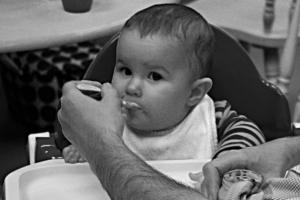
We all have our likes and dislikes when it comes to food. However, whether it be a dislike of peas or a love of garlic, few of us are aware of the reasons behind our taste preferences.
Food writer and historian Bee Wilson tells Steve Fast that a surprising amount of the unconscious reactions we have regarding taste are learned.
“Eating is not that instinctive. It’s not like breathing,” Wilson says. “It’s a series of really complex skills that we’ve each got to learn.”
Research shows that flavors are introduced to children from breast milk and even in amniotic fluid. Those flavors have a huge influence on what infants find palatable as they get older.
That early influence can present a challenge for parents as they try to introduce healthy solid foods to kids.
Wilson says that it is not just what we try to get our kids to eat that can effect a child’s health and well being, but also how we train them to approach food. This could be a factor in the rising rates of obesity.
“As parents we’re feeding kids with this inherited set of assumptions of feeding that belong to an era of scarcity,” Wilson notes. “What we should be protecting children against is, for the most part, over eating.”
Bee Wilson is the author of “First Bite: How We Learn to Eat.”
Listen to the interview: Bee Wilson on The Steve Fast Show
Follow Steve Fast on Twitter @SteveFastShow






